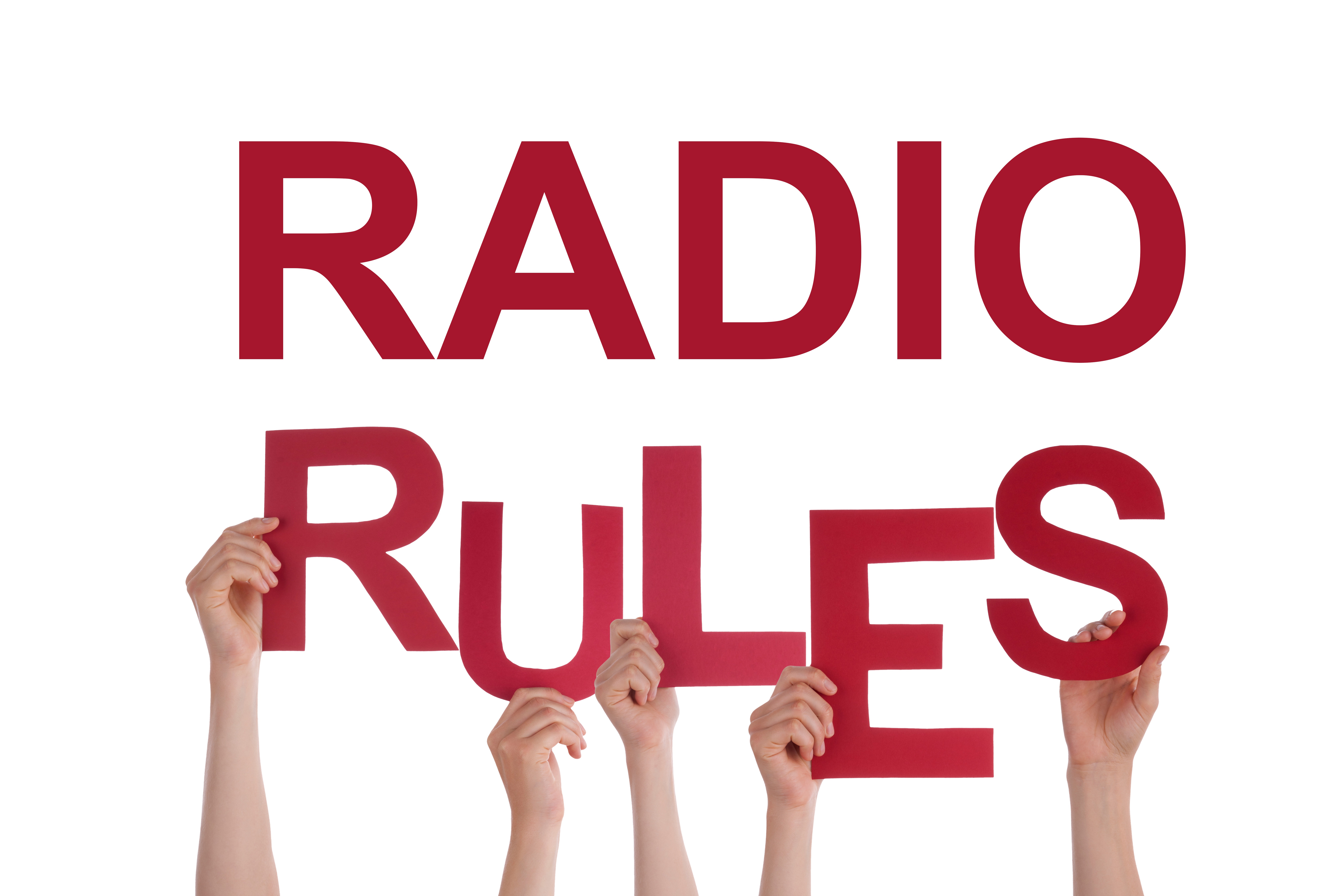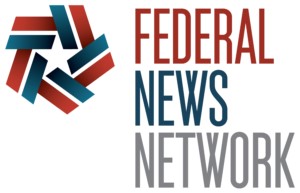
Most business evolve, often by inertia. “The way we’ve always done it” mindset is alive and well in every type of organization, from the biggest global corporations to Main Street mom & pop’s.
But of course it’s that same mentality that can be a boat anchor on individual businesses and entire industries. If you don’t lose those old rules, you can end up being trapped by them. In disruptive times like these, not questioning convention can prove to be a costly mistake.
This came to mind recently when Mike Stern shared an article with me: “9 Outdated Grammar Rules You Can Finally Ignore”
Like “you can’t end a sentence with a preposition.” Except I do this when I want to.
No, this is not a blog post about archaic grammar rules, but Mike got me thinking about all those outmoded “radio rules” – the ones programmers, marketers, sales people, and GMs follow – why? – because they always have.
I started my list, with a little help from my team, but this will work much better when you radio vets and newbies add to my list. I would think newcomers to the radio industry might especially wonder why things are always done this way.
So here’s my list:
1. You can’t play two female artists back-to-back – This one must have started a long time ago, but in my world of rock, the idea you can’t play Stevie Nicks into Joan Jett, or a more modernized version, Halestorm into Dorothy makes no sense to anyone working in radio – or listening to it. And on that same note…
into Joan Jett, or a more modernized version, Halestorm into Dorothy makes no sense to anyone working in radio – or listening to it. And on that same note…
2. You can’t schedule two female hosts back-to-back – This one makes women air talent crazy and it should. In fact, it’s a big part of the reason why many stations only had one female on the airstaff. Maybe this is why in our AQ research studies of radio personalities, the percentage of female hosts can’t ever break the 30% statistical glass ceiling.
3. Talk radio must be conservative – Why couldn’t it be liberal or even moderate? Why couldn’t it be focused on DIY like home, car, appliance repairs? Or food? Or any number of verticals or pastimes that reflect the essence of what the city or region are all about. Hubbard has the Federal News Network in Washington, D.C., a station that caters to the government and its workers. Couldn’t there be an L.A. talk station that caters to the entertainment industry, or one here in Detroit that’s all about the automotive industry?
like home, car, appliance repairs? Or food? Or any number of verticals or pastimes that reflect the essence of what the city or region are all about. Hubbard has the Federal News Network in Washington, D.C., a station that caters to the government and its workers. Couldn’t there be an L.A. talk station that caters to the entertainment industry, or one here in Detroit that’s all about the automotive industry?
4. You can’t win a contest within 30 days after winning one – That’s right, let’s send our contest fanatics – the ones who overconsume the station trying to win anything and everything you give away – a reason to listen to a competitor for 29 days. Don’t these people get meters and diaries, too?
5. People are watching TV at night – they don’t listen to the radio after dark – It’s the rationale for firing the overnight guy and the night gal. If no one’s listening, why have live talent? Why have voicetracked talent? Why not just segue the music with repetitive pieces of production to kill 11 hours of the day, five of them rated hours? If you give listeners something or someone to listen to at night, they not only will listen, but the station that will play first when they wake up the next morning is – YOURS.
6. No one will put a radio station bumper sticker on their car – So why bother with them? Except when they love your station or your morning show, why wouldn’t they want to tell other drivers about it? And after all, you’re not doing any other mass marketing anyway, so why not let listeners display your logo? And oh by the way, you can sponsor the backs.
wouldn’t they want to tell other drivers about it? And after all, you’re not doing any other mass marketing anyway, so why not let listeners display your logo? And oh by the way, you can sponsor the backs.
7. We can add a few units – who’s going to notice? – This is the slipperiest of all the slopes. And it’s one that has gotten more insidious over time because now commercial radio has lived up to its name – it owns the “most commercials hill” lock, stock, and barrel. They’ve noticed.
8. We can’t freshen up the music until our next music test – in January – So, let’s keep playing the same 243 songs that scored above our imaginary line in our last test in April. Shifting songs from category, adding “chocolate chips” to the schedule, and reviewing songs that “just missed the cut” are all part of a PD’s responsibility to keeping the music sounding vital and fresh. And “setting it and forgetting it” is the mindset that causes those pop culture viral moments, like Fleetwood Mac’s “Dreams’ in that viral TikTok video or “Running Up That Hill” which was resurrected in “Stranger Things.”

9. Don’t repeat bits in the morning show so listeners don’t hear them twice – It’s a rare show where a large audience is listening all four hours. Separating bits by a couple hours pretty much ensures the same listeners won’t hear them again. And if it’s really great, play it again tomorrow (in a different hour), make sure it’s available on-demand, and put it up on your YouTube channel.
10. Don’t promote the stream – we can’t afford to lose a meter or a diary – But you’ll lose listeners if they don’t remember you have a mobile app or they can listen on Alexa. Your stream is the distribution outlet that allows you to “meet the audience where they are.” Watch ESPN for 15 minutes if you want to see evidence of why the “everywhere” tactic is effective.
There’s my list of ten archaic, outmoded “Radio Rules.” Something tells me you have a couple of your own.
So, let’s see them, shake our heads and laugh at them.
And stop following them.
Use “comments” below to add your rules or visit my socials. – FJ
- In Radio, You Just Never Know - April 17, 2025
- The Secret To Making A Great Podcast (And Great Radio) - April 16, 2025
- I Read The (Local) News Today, Oh Boy! - April 15, 2025




FINALLY!! these have been put to paper! My 2 answers to most all of these rules are “Who says?” & “Rules are made to be broken” I spent 38 years in radio, both music and talk. I must have heard these “Rules” or as baseball would say ‘Unwritten Rules” thousands of times. Why should it matter if you play 2, 3 4 or 5 female artists in a row? if its a hit, it’s a hit and should be played. Same goes for numbers 2 thru 10 on the list. Programmers take note to this article, it just may save you!….and your job.
Wonderful list of “rules”. And what’s scary is there are some (many?) in the business that still believe these “rules”!.
These are great Fred. My very first radio job, is the only gig I was forced to change my name.
Why? Because the morning guy was Rob ( not his real name) I was doing 6pm to 11pm and the owner thought it would be confusing … so my name was changed to BOB!!
Culture has evolved and these rules no longer (if ever) apply now. Our problem for the past couple of decades is we haven’t evolved at all.
Daypart the Music
Don’t play ballads like “Dust in the Wind” by Kansas after 3:00 pm, You’ll put the listener to sleep!
Don’t play “Hair of the Dog” at 7:00 am. Way to jarring!
Rule #1 about through me to the floor with laughter. It was the first rule I was taught when I started scheduling music in the late 80s. I find it both funny and sad, as I gotta believe some people still believe in the rule.
This made my day. It’s so nice to see someone like you calling BS on these rules. Especially the women rule. It’s a hard road, but I think those rules are being called out for what they are. Just 4 years ago, I freshened up a classic country station that wouldn’t play more than one female AN HOUR. AND they were only playing 4 or 5 of the classic female artists to boot! The listeners were thrilled to be hearing the classic females again. As for the females back-to-back on the air, I think you nailed it. Actually, you nailed every one of those, Fred! Especially the re-playing of the bits, and the banning of your passionate listeners for winning. It always seemed like shooting ourselves. Thank you for posting something like this. When people like you say it, it’s heard so much more.
My addition to the list: I cant even begin to describe the convoluted way my “on-air” name was assigned to me by a PD but at least it wasn’t “X St. John”.
Fred, this is awesome, just a couple off the top of my head.
1 – that song is too heavy for mornings
2 – only powers kick off an hour – what is the top of the hour outside of broadcasting anyway
3 – no really, we still use hot clocks
4 – play ‘X’ amount of songs per hour
5 – too much talk is a tune out
6- the music is the star
7- shut up and play the music
8 – don’t have an opinion
9 – there’s a lineup of people ready to take your job
10 – for Canadian stations only, never 2 cancon back to back or out of commercials into a cancon
11- don’t talk with artists on air, nobody cares
Or this one: “Don’t give your talent any discretion to add a track that’s not on the list, because they’re imbeciles and will degrade your station.” (Never mind that such discretion is how FM conquered AM half a century ago.)
Re your #2, Doug.
I do have a rule about no slow songs at the TOH simply because we still use jingles and medium-to-up songs sound better after the TOH jingle.
They happen to be powers, but that’s just because of how the hour clock is designed (TOH is in the middle of a music sweep which starts jingle-to-power). That position could just as easily be a lesser category.
New rule: jingles are lame and make a station sound dated and goofy.
“Dated and goofy” can be a plus if you are positioning yourself with a gold-based format against a competitor whose imaging is so “current” that it clashes with the music.
That’s been my experience, at least.
Always say the station name as the first and last thing in every break…
Bingo, Marty.
My specific responses to a few of these:
#1: I try not to play more than two female artists back-to-back, just as I prevent playing too many songs in a row that are harder, or synthpop, or … or … well, you get the idea. Rather than worrying about the gender of an artist, we should be trying for the best balance possible.
#8: I move songs between power and secondary, secondary to rest, rest to fill, every week. Sometimes one week in power rotation, then back to secondary is just enough for listeners to hear it when their listening patterns didn’t bring them to the station at times where they would reliably hear all the secondaries over a few weeks. And I actually schedule “chocolate chips” once an hour (I call it “Forgotten 45s” because that resonates with a Classic Hits audience) and I both curate those using Mediabase airplay reports AND after three weeks of any song in that category playing every other day — in a different daypart every time and a different hour when it repeats in a daypart (scheduling rules rock) — those songs rest for a MINIMUM of four months before I put them back in rotation. Who says I can’t do that? Certainly not the listeners, whose reaction is usually “oh-wow-I-haven’t-heard-that-song-in-forever”.
10. First thing I insist on when I take on a client station is a stream, and if they don’t have a website to embed the player in, I provide a clutter-free page on my own server that they can link to. And then the on-air promos start, promoting “we’re also on your smartphone and computer”. Give the listeners easy access to a station they love and they will love it (and listen to it) more.
The rest, I shake my head sadly at as I realize how much those “rules” are still extant at so many stations — and markets, especially rule #3 — and honored as if they were on Moses’ stone tablets.
My take on #6 is that it’s even counterproductive to refer to them as (merely) “bumper stickers”, as they really can be used for many other purposes. And, the supplier who’s responsible for said stickers probably can also handle plenty of other promotional items (e.g., shirts, pens, and kitchen magnets).
You forgot one. “People don’t want to use their phone, just have them enter online or text to win”.
“You shouldn’t promote a time to listen for a radio contest. Making appointments doesn’t work.”
Radio “contests” were inspired by the screaming orgasmic listener who just won $1,000. Radio contests were thought to be “rigged” until the listener heard the name of someone they knew.
Radio contests are now designed to do…something, but for those who listen, we can’t figure out what. Do they really award the prize? Is there any thinking involved? What is a text to win? What if I misspell the word?
Imagine if “The Price Is Right” or “Jeopardy” had contestants text to win. Sheesh. A radio “game” that includes advancing the format and/or positioning is a real plus to entertain the listener!
In other words, is making it fun for the listener out of style?
As someone who won WAY more than his share of radio prizes, I LOVE this comment! I can tell you, even after winning a prize, I still enjoyed listening to others trying to figure out the next 10 songs in the three-second montage or waiting to see who would be the last person riding that roller coaster for a new car! I can also tell you not once have I ever logged into a radio station website to see who was the ninth person to text that company nationwide. In short, done right, contests aren’t just for contestants.
Had a consultant years ago that had a rule that any song with a day of the week in the title should only be played on that day. We ignored that one. Consultant to be unnamed.
Remember the pop song by Cherelle with the lyric “Sunday Monday Tuesday Wednesday Thursday Friday Saturday love”? She must have wondered why her royalty checks suddenly took a nice bounce when that policy was put in effect!
At least I know it wasn’t me, because I would never make such an idiotic rule.
My bumper stickers find their way to student laptop covers. Just sayin’.
Stop sets occurring at the same time each day.
Commercial breaks occurring at the same time as competing stations.
Rule number 3 came about because of Rush Limbaugh’s massive success and the feeling that the P1s were mostly conservative anyway. I would say that progressive talk’s relative failure is not because there are too few people left-of-center and more like that particular audience prefers their talk radio like NPR’s–more-or-less impartial and built on guests and topics, not phone calls. Whether it’s Hannity or Stephanie Miller, that audience is just not interested in the “let’s hang the politicians by their private parts–whaddya think? Call me now” school of talk radio, whether it be right or left.
I wonder why there aren’t more stations like Hubbard’s My Talk in Minneapolis–non-political and aimed at women. It’s easier to just grab a bunch of rightwing hosts off the satellite?
Mark, many in radio believe more moderate (even liberal) talk could thrive. And as pointed out in the post, there could be other forms of talk besides political ranting.
As far as the 30 day rule for winners, Back in the 80’s a neighbor tried to circumvent that rule using my mom’s name. Eventually one of the air talents caught our neighbor at her game and banned her from winning more contests. So I feel that rule should stay in place ( and keeps the “prize pigs” as they were once called from being too greedy). But in my market, the competitions, in morning drived on the classic hits station and afternoons on the Hot AC, do tend to draw quite a few contestants.
As to radio bumper stickers, until the pandemic hit, you would see lots of cars with the stickers for the local Christian music station. And that station does well and sometimes is top 5 6+ in the PPM market nearby. Maybe a bigger promotional budget for some of these stations would help, instead of the national text-to-win deal that people like me never enter anymore. And I still have a few from the last 12 years and am looking to add more stations, if the budgets and revenue allow. I won’t mention maybe trying to bring back one position related to the stickers. But save that for management and the lawyers.
I appreciate the comment, Stephen.
Allow me to add a research rule to your list, Fred. “The tried-and-true perceptual study is a must-have for strategic planning.” There are elements of the standard perceptual study that are as relevant today as they were when they were first conceived some 50 years ago. But the enormous changes in how people feel about radio and how their listening is measured by the ratings services mean that “perceptions” are no longer as valuable as they used to be. The shift from diary to PPM has changed the nature of the game from molding perceptions and recall to affecting behavior and exposure. Sadly and probably more important, radio occupies far less mental real estate among listeners today than it did 50 years. That means fewer meaningful “perceptions” that you can capture in a survey and, in turn, act upon. As much as radio needs to re-think its rules, so does the research that serves radio.
Ok Fred, I have a story for you…
It was my first PD job, program director of 106.7 KAZY in Denver. I was 23. Bill struck, the station’s GM handed me the job when Trip Reeb left for 91X in San Diego. Corporate in Atlanta didn’t love the idea. KAZY was one of the biggest stations in the company. Maybe only V103 in Atlanta was bigger, and I was impossibly young, first time up to bat as a PD, etc. In Denver we had a four station, actually I think it was a five station rock battle: KAZY, KBPI, KBCO, The Fox, and KTCL. KAZY was arguably one of the first if not the first FM station to play rock records in America. However, it had trailed KBPI and KBCO for decades. KBPI was programmed like a top 40 station playing lots of hair bands, and disposable current rock. KBCO had a mellow and eclectic mix. The Fox was classic rock, and KTCL was in Fort Collins just reaching into the Denver market and taking a little share of audience. I thought that on those car radio pre-sets, every time someone punched in KAZY we better be solidly rocking. If it is a rock battle, we better play the best, most credible rock spanning the decades…but most importantly we better bring the tempo. We needed to always undeniably be rocking. Per your article above, one of the big rules of programming was “dayparting.” There were songs that couldn’t be played in morning drive. Some that had 3P starts, others that were harder that were not to be played before 7P and even still some songs that did not get on the air until 10P or later! I guess that would be something like “Number of the Beast” by Iron Maiden maybe. Anyway, I thought, what if I removed all the departing? What if any song could play anytime? KAZY would be winning, rocking intensely anytime someone tuned in or hit their pre-sets. We would make KBPI sound wimpy, and to a certain extent do the same for KBCO. So I removed all dayparting. Shortly after that, one morning around 8A, I was standing on my desk with my fists in the air listening to “Paranoid” by Black Sabbath on the morning show when Mary Catherine Sneed walked into my office. She was my corporate programming boss visiting from Atlanta. Mary Catherine did not agree with my strategy, thought the station sounded terrible, and made it known to my boss Bill Struck. He supported my decision. Soon the ratings came out and KAZY shot straight to the top. Not long after that I left for KROQ-FM in Los Angeles. Of course there were a number of other factors that led to our success in combination with zero dayparting including imaging, promotions, and my on air team.
Andy, and a great story it is. Your “tactics” would be welcome in the current environment where (IMO) fans crave hearing “rule-breaking radio.” Understanding listener expectation in the local marketplace isn’t a state secret – it’s the key to giving them what they want and differentiating your brand from the competition. Thanks for sharing your experience.